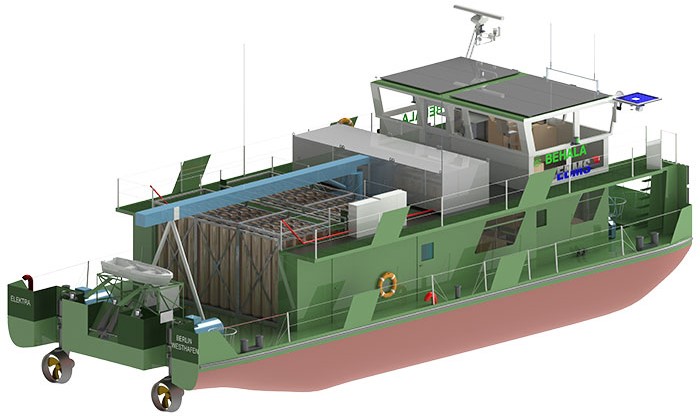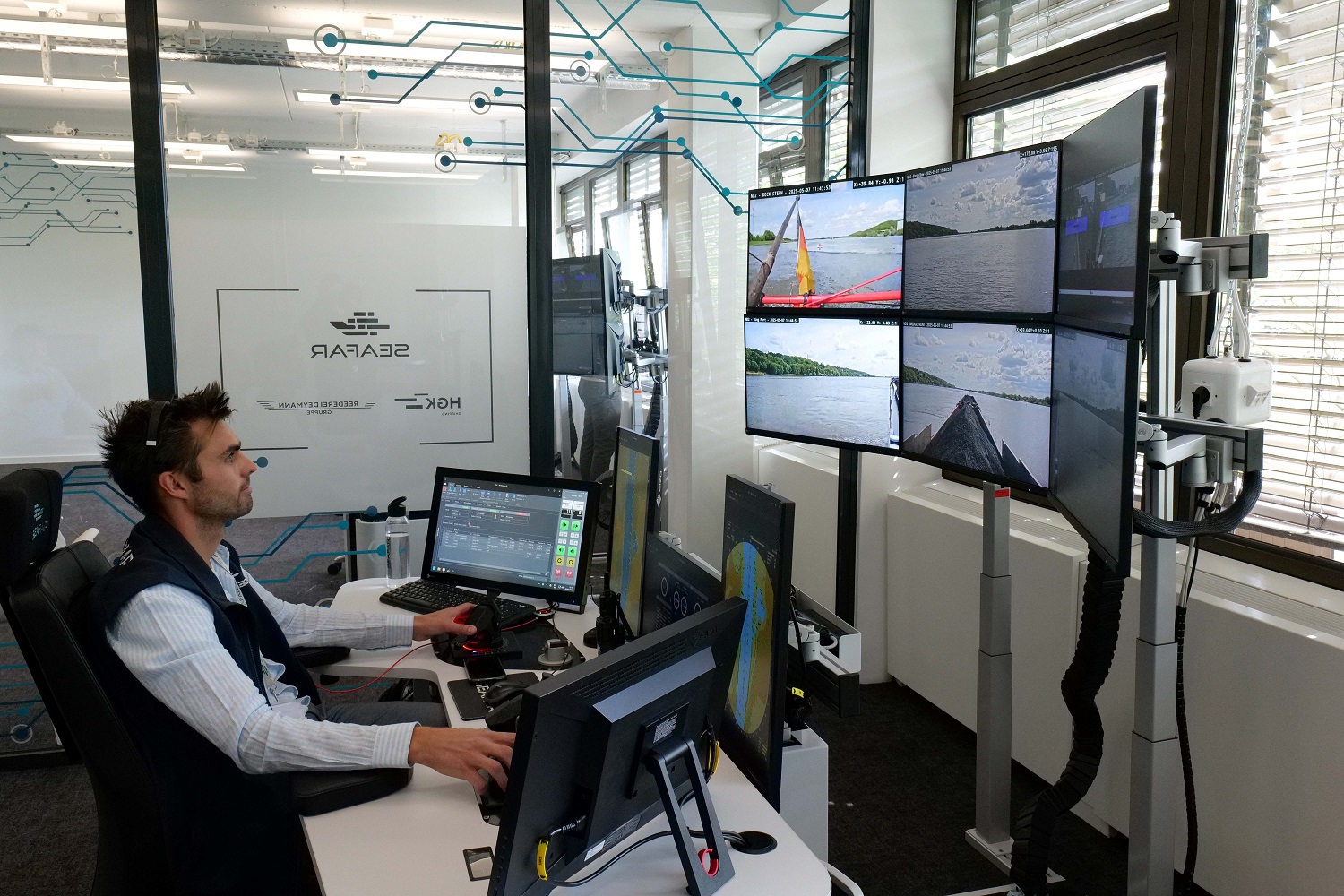Cameras on all sides and a good mobile network connection are all you need to remotely control a large cargo ship. This technology, currently being tested by a German company, aims to combat the severe staffing shortage.
The German government’s authority issues an initial permit for test operations for remote-controlled inland waterway vessels on the German canal network HGK_Shipping_Test_Permit_Remote_Control

The goal of the HGK Shipping
A captain sits at his desk in Duisburg, Germany, as his ship sails 400 kilometers through a canal near Lüneburg. This is the goal of the Cologne-based German shipping company HGK Shipping, which has received approval to conduct a six-month trial of remotely operating a cargo ship along a major German canal. The ship will be controlled from a command center approximately 400 kilometers away.
The vessel “Lower Saxony 2”
The trial involves the vessel “Lower Saxony 2,” which will be remotely piloted through the Elbe Canal using radar, radio communications, and controls from an office in Duisburg, western Germany. This technology aims to address the acute shortage of skilled workers by providing a stable office role for ship captains, replacing long periods of continuous work at sea. “It’s an effective tool to make the profession more attractive to skilled workers,” said company CEO Steffen Bauer.

Competitor Rhinos
To combating the severe staffing shortage





